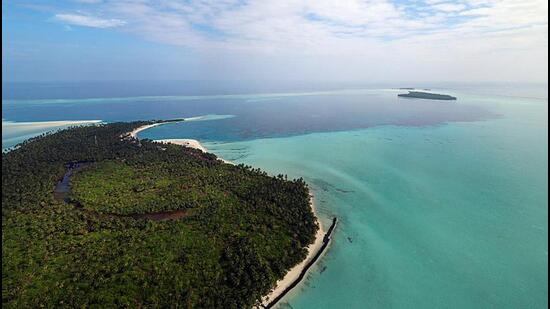Parliamentary panel to table Nicobar project report in July
The committee is also reviewing input from communities affected by the Sardar Sarovar dam and the Polavaram dam in Andhra Pradesh
A parliamentary panel will present findings on the implementation of India’s land acquisition law in regions affected by major infrastructure projects, including those in Great Nicobar and Lakshadweep, during the upcoming Parliament session in July.

The Parliamentary Standing Committee on Rural Development and Panchayati Raj has been gathering testimony from experts, stakeholders and local residents from areas impacted by large development initiatives, according to committee chairperson Saptagiri Sankar Ulaka.
“We had a subject meeting with stakeholders from Great Nicobar, Lakshadweep, Kevadia, Polavaram and Ken Betwa on implementation of Right to Fair Compensation in Land Acquisition, Rehabilitation and Resettlement Act 2013. A report on the findings will be submitted during the next session in July,” said Ulaka, a Congress MP.
Last week, these stakeholders made presentations to the committee regarding how the land acquisition act was implemented in their regions where substantial infrastructure or tourism projects are under development.
The 2013 Act aims to ensure a “humane, participative, informed and transparent process” for land acquisition while providing fair compensation and rehabilitation to affected families. It mandates obtaining consent from affected people and conducting a Social Impact Assessment study before land acquisition proceeds.
In Great Nicobar, the Holistic Development project is proceeding at a cost of ₹81,800 crore. The initiative includes an International Container Transshipment Terminal, a Greenfield International Airport, township development and a power plant, covering 16,610 hectares in ecologically sensitive areas.
The Great Nicobar project has faced criticism due to potential impacts on biodiversity, rainforests and tribal groups, including the Shompen. The Nicobar Islands are part of the Sundaland Biodiversity Hotspot, which extends to the western Indonesian archipelago. Two anthropologists specialising in Great Nicobar briefed the committee on these concerns, according to people aware of the matter who asked not to be named.
In Lakshadweep, stakeholders highlighted several issues, including diversion of land belonging to scheduled tribe populations, appropriation of “pandaram” lands previously leased to locals, new fishing zone restrictions affecting livelihoods, and tourism project encroachments damaging coconut trees vital to local industries, one of these people said. Experts emphasised that local communities have been excluded from participating in tourism development in the union territory.
The committee is also reviewing input from communities affected by the Sardar Sarovar dam and the Polavaram dam in Andhra Pradesh.
The 30-member committee includes representatives from various political parties, such as Parshottambhai Rupala, Raju Bista and Jugal Kishore from the Bharatiya Janata Party (BJP), Janata Dal MP HD Devegowda, and Vaiko from MDMK, among others.






